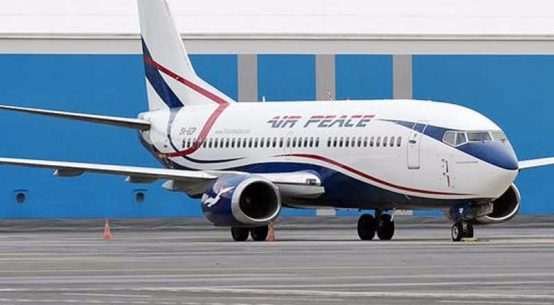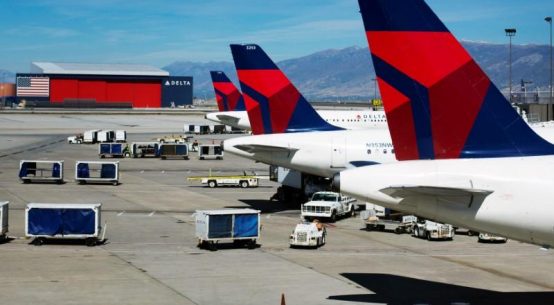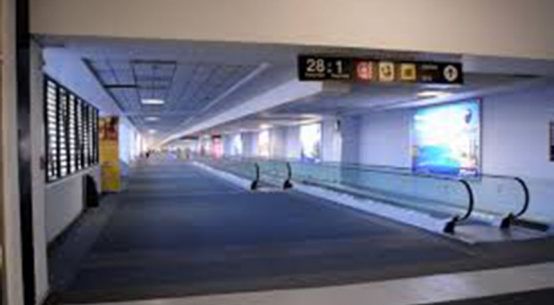
A two-page proposal that will be considered in June could postpone the release of a final World Customs Organization framework for another year.
U.S. Customs and Border Protection (CBP) is hoping to “lead and facilitate” international e-commerce standards as it is submitting to the World Customs Organization (WCO) a two-page document intended to pare down a draft WCO framework of e-commerce standards released in December, CBP Trade Policy and Programs Executive Director John Leonard said at a trade conference last week.
Speaking at the National Customs Brokers & Forwarders Association of America (NCBFAA) Annual Conference in Rancho Mirage, Calif., on Wednesday, Leonard noted that “every customs administration in the world” is considering e-commerce’s role, and that the WCO in December “rather suddenly” released a draft framework of standards based on work it had done in other countries.
That “very detailed” 50-plus-page draft “triggered a lot of consternation” in various parts of the U.S. government and private sector because the process was sudden and ad hoc in terms of “the review process for such an important document,” he said. “A framework is a very serious instrument for the WCO, and they don’t use that term lightly and rarely will issue one.”
CBP “wants to make sure” the WCO didn’t too quickly issue the framework, which the Office of the U.S. Trade Representative, “in particular,” thought veered too far outside of the customs lane and into aspects of trade policy, trade and financial services, anti-competition issues and data privacy and security issues, Leonard said.
“So, we wanted to try to put the brakes on this document, and we made some serious progress in meetings in April, to kind of scale the document back, make it a little more realistic, and so if we’re successful there, where it stands right now is we have a two-page document of 15 standards with some introductory language, and the WCO Policy Council in June will consider this,” Leonard said.
Leonard added the hope is that the document will postpone the release of a final WCO e-commerce framework for about another year.
In an effort to stem an e-commerce-driven increase in split shipments to avoid standard customs entry processes — shipments which are prohibited — CBP has identified exploitative distribution facilities, importers and others with shipments that now are being required to accompany formal entries in lieu of Section 321, or de minimis entries, said Jim Swanson, director of the Cargo and Security Controls Division for Cargo and Conveyance Security in CBP’s Office of Field Operations.
The increase of the de minimis level from $200 to $800 in 2016 has contributed to a rise in smaller value shipments, particularly at mid-sized and smaller ports across the United States.
Swanson added that CBP is working on changing regulations exempting from e-manifests for de minimis shipments from filing requirements.
“For now, what we’re telling [filers] is …‘You do not have to file electronic manifest. We can’t make you do it. However, there’s nothing that says we have to clear that cargo expeditiously,’” Swanson said. “So we are going to say, ‘Do your e-manifest, give us some advance information and work with us to identify where things are on the trucks. We can get you through faster. However, those of you who don’t may find we have to stop that truck, we have to examine that truck and guess what? It may take you three days to get cleared.’”
But data fields essential for targeting illicit shipments are absent from manifests, including importer of record, consignee, seller and 10-digit Harmonized Tariff Schedule (HTS) codes, AN Deringer Director of Customs Affairs and Compliance Amy Magnus said during the conference.
“I truly believe that [CBP needs] more information to enforce for compliance issues like IPR-type violative goods, forced labor, any type of antidumping or countervailing,” said Magnus, also now NCBFAA’s president. “Oh, and also what about all these new duties that we’ve been having fun within the last couple of weeks?”
She added that global steel and aluminum tariffs pursuant to the Trade Expansion Act of 1962 and potential tariffs on Chinese goods pursuant to Section 301 of the Trade Act of 1974 could incentivize even more de minimis shipments to the United States.
HTS code insertion could be an “opportunity” for brokers filing Section 321 entries because brokers “all live” in the Automated Commercial Environment (ACE), and “out of all the modes” are most familiar with HTS, Alba Wheels Up International Executive Vice President for Growth and Strategy Vince Iacopella said.
Swanson said another aspect CBP is considering in the context of Section 321 regulations is how traditional methods of doing customs business might not logically apply in the de minimis context. One of the things CBP is considering is how to shift responsibility for illicit shipment-related activities to foreign shippers when warranted, he said.
CBP has said it is waiting until the completion of NAFTA negotiations before it finalizes Section 321 entry rulemaking, as the Office of the U.S. Trade Representative has said it is seeking for Mexico and Canada to raise their de minimis thresholds closer to the U.S. level.
“I don’t think you’re going to see a flat-out Canada and Mexico accepting” an $800 de minimis, Leonard said.
CBP is working to submit a list of desired additional e-commerce-related authorities to Congress.
More specifically, CBP is seeking enhanced legal regulatory ability related to e-commerce; improved and adapted e-commerce-related field operations; incentivization of increased private sector compliance, including “new actors” such as platforms and marketplaces, to be more compliant; and to lead and facilitate global e-commerce standards, Leonard said.
Officials said last week that CBP intended to submit its list to Congress by the end of the day Friday to meet a 60-day deadline set by Sen. Ron Wyden, D-Ore., during a March 6 Senate Finance Committee hearing. But the agency hadn’t submitted its list as of Monday morning, according to a Wyden spokesperson.
“Our staff is in the process of setting up a briefing with CBP on the subject,” the spokesperson said.
.









